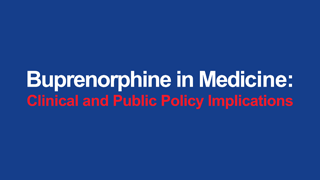A double blind randomized clinical trial of buprenorphine augmentation for treatment of psychotic symptoms in opioid addicted bipolar patients
DOI:
https://doi.org/10.5055/jom.2019.0525Keywords:
buprenorphine, psychosis, bipolar disorder, clinical trialAbstract
Objective: To assess the efficacy of buprenorphine augmentation in treatment of psychotic symptoms in bipolar disorder type I.
Design: Bipolar type I patients with manic or depressive episodes and psychotic feature and with opioid dependency comorbidity were randomly included and allocated. Both groups of buprenorphine (4 or 6 mg/d) and placebo were also treated with enough dosages of sodium valproate and risperidone. Psychosis as primary outcome and depressive and manic symptoms as secondary outcome were assessed at baseline and after 1 and 2 weeks. Data were analyzed through t test and repeated measure ANOVA.
Results: Twenty-four patients remained in each group. Both groups displayed significant reduction in psychotic, depressive, and manic symptoms during the 2 weeks of study, although there was not any significant difference between them.
Conclusions: Buprenorphine did not add any efficacy to usual treatment of psychotic episodes of bipolar, although did not aggravate psychiatric symptoms.
References
Maremmani I, Pacini M, Pani PP: Effectiveness of buprenorphine in double diagnosed patients. Buprenorphine as psychothropic drug. Heroin Addict Relat Clin Probl. 2006; 8 (1): 31-48.
Maremmani AG, Rovai L, Rugani F, et al.: Substance abuse and psychosis. The strange case of opioids. Eur Rev Med Pharmacol Sci. 2014; 18 (3): 287-302.
Schmauss C, Yassouridis A, Emrich HM: Antipsychotic effect of buprenorphine in schizophrenia. Am J Psychiatry. 1987; 144 (10): 1340-1342.
Weibel S, Mallaret M, Bennouna-Greene M, et al.: A case of acute psychosis after buprenorphine withdrawal: Abrupt versus progressive discontinuation could make a difference. J Clin Psychiatry. 2012; 73 (6): e756.
Karila L, Berlin I, Benyamina A, et al.: Psychotic symptoms following buprenorphine withdrawal. Am J Psychiatry. 2008; 165 (3): 400-401.
Cobo J, Ramos MM, Pelaez T, et al.: Psychosis related to methadone withdrawal. Acta Neuropsychiatr. 2006; 18 (1): 50-51.
MacEvilly M, O’Carroll C: Hallucinations after epidural buprenorphine. BMJ. 1989; 298 (6678): 928-929.
Khalili N, Gudarzi SS: Opioid withdrawal-induced hypomania: A case series. J Opioid Manag. 2012; 8 (1): 67-72.
Published
How to Cite
Issue
Section
License
Copyright 2005-2025, Weston Medical Publishing, LLC and Journal of Opioid Management. All Rights Reserved.










